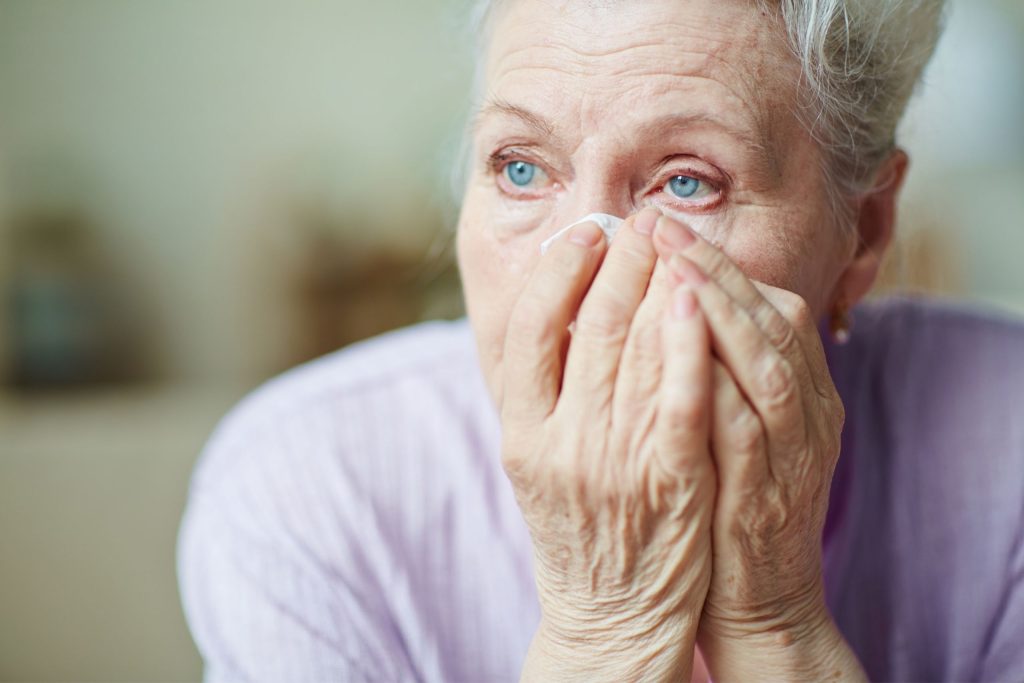- Free Initial Consultation: (954) 761-3641 Tap Here To Call Us
South Florida Nursing Home Abuse, Neglect Too Often Hidden From Public Scrutiny, Report Reveals


South Florida nursing home abuse and neglect is too often being hidden from public scrutiny, thanks to a private federal appeals process that keeps incidents of sexual assault, lack of infectious disease control, and absconding patients. That’s according to a recent investigation by The New York Times, which took a deep dive into such incidents and their impact on the Centers for Medicare and Medicaid Services’ (CMS) rating system for nursing homes. The rating system has been touted as a tool the public can use to reliably assess the safety of long-term care facilities for elderly and vulnerable loved ones. Prior incidents of abuse and safety lapses are supposed to be included in the star-based rating system. But as the journalists uncovered, at least 2,700 dangerous incidents involving nursing home abuse, neglect and negligence were not factored at all.
Many of the incidents were identified by state inspectors and verified by the superiors in those agencies. Yet the secretive appeals process meant that those incidents were never made public or counted in the rating system.
The Times and other media outlets have previously identified issues with the system (erroneously entered data can make nursing homes appear both safer and cleaner than they are, and issues with overuse of antipsychotic medications are poorly documented). However, as our Fort Lauderdale nursing home abuse lawyers can explain, the omission of thousands of validated problems uncovered during inspections is deeply troubling because inspections are at the core of the rating system on which the public relies.
On-the-ground inspections of nursing home facilities are the very basis for Care Compare, the site that rates nursing homes throughout the country. These are part of a process intended to improve transparency in facilities that promise to care for society’s most vulnerable. But state inspectors very rarely issue severe citations as it is – even when egregious offenses involving abuse or neglect occur. But even when there are penalties, The Times reported that nursing home administrators have the opportunity to appeal those rulings, almost entirely in secret. When the informal reviews don’t result in the nursing home’s desired outcome, they can appeal to a federal court that is part of the executive branch (in what seems to be a breach of the separation of governmental powers) in a process that is concealed from the public.
Furthermore, even when such citations are affirmed in this secretive federal court process, some of them still never make it into the rating system. In one example, a nursing home in Washington State was slapped with a major penalty for allowing COVID-19 to run rampant in the early days of the pandemic. Yet that citation does not appear on the Care Compare site, on which the facility retains its 5-star rating. The fact that this pattern was noted again and again reveals why nursing homes have a powerful incentive to appeal such allegations – even when wrongdoing appears glaring. Even if they ultimately lose, there’s a decent chance that report will never become public.
Nursing home executives say they should be granted the ability to appeal citations prior to them being made public, as they can be either overturned or downgraded. What they fail to acknowledge, though, is that the appeals process rarely allows patients or their families to participate in the proceedings.
An official with CMS said that it’s only fair that citations are omitted while the appeals process is pending, but said failure to factor in substantiated citations is an issue CMS is “working to correct.”
Meanwhile, there are no public dockets indicating the case status or recent legal filings. Patients and family members are also barred from testifying.
Higher Care Compare Star Ratings Mean More Money for Nursing Homes
Results of inspections by state health investigators comprise the biggest component of the star ratings for nursing homes. In theory, a facility with an excellent inspection rating will garner five stars, while one in which inspections unearth significant issues may only get one or two stars. That translates to a significant monetary impact. The public, searching for the best care facilities for their elderly or disabled loved ones, put a lot of stock into the star ratings. As such, there’s a strong correlation between better inspections and higher profits. Facilities with 4- and 5-star ratings are considerably more profitable than facilities with fewer stars. (For-profit corporations operate 7 in 10 nursing homes in the U.S.)
State health inspectors have routine inspections every year or so, but may also be dispatched for specific complaints. Inspectors will sift through medical records, shadow aides and nurses, interview residents and staffers, and test everything from the cleanliness of the bathrooms to the temperature of the coffee. Problems can lead to citations, which must be backed by evidence and vetted by an agency supervisor.
Most nursing home citations are for minor infractions. (Inspectors have been criticized for years for giving nursing homes slaps on the wrist where more significant penalties were warranted.) However, those that have the potential to put patients in immediate jeopardy or that cause actual harm can substantially impact a facility’s star rating. But consider that there were more than four dozen nursing homes with five-star ratings where inspectors decided that incidents of sexual abuse didn’t meet the bar for “actual harm” or “immediate jeopardy.” Even when nursing homes are cited for serious infractions, inspectors (often overworked and poorly paid) pretty much expect that the facility will push back hard, often resulting in citations being tossed or reduced. Some inspectors have also been fired after issuing citations for severe infractions and/or complaining when those citations are later thrown out, though officials deny that’s the reason.
Overlooked Problems
Among the incidents that never made it on to the Care Compare website:
- A New Jersey resident who was arrested after being spotted hiding heroin in the purse of another resident after a third had died from a heroin overdose.
- That a New Jersey nursing home was cited for failure to protect a fragile resident from falling seven different times, once breaking her foot.
- That a West Virginia nursing home was cited after a resident fell to the ground and died after staffers erroneously removed bed safety rails.
- An Ohio nursing home was cited after an investigator found a woman smoking while connected to a flammable oxygen tank.
- An Indiana nursing home was cited for increasing the risk of serious injury to a resident by installing the wrong railings on her bed.
- An Arizona nursing home was cited for failing to protect a 76-year-old woman from sexual assault by another resident – one who had a long history of assaulting staffers.
- A Texas nursing home’s citation for allowing an 87-year-old woman with dementia to wander unsupervised into the parking lot in a wheelchair in near-freezing temperatures in only a nightgown. She was found on the pavement after 30 minutes, bloodied and freezing and with a broken nose. The facility was cited for failing to supervise her and drugging her unnecessarily. After four years, the nursing home lost all appeals. Yet the incident was never posted to the Care Compare website.
If you or a loved one has suffered serious injuries in South Florida due to nursing home neglect, negligence, or abuse, our dedicated personal injury and wrongful death lawyers can help you fight for accountability and justice. Evidence of prior incidents of abuse, neglect, or negligence can be used to strengthen your case for liability and potentially increase your damage award.
Call Fort Lauderdale Injury Attorney Richard Ansara at (954) 761-4011. Serving Broward, Miami-Dade and Palm Beach counties.













